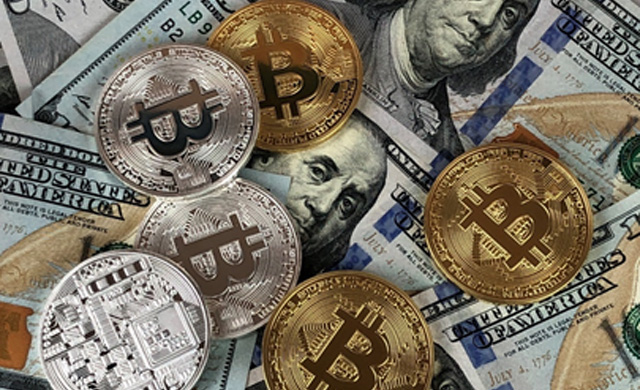The invasion of Ukraine and the sanctions imposed by many nations severely restricted Russian access to the global financial system. An inexpensive, anonymous method of sending money across international borders that simultaneously posed a challenge to the dollar’s privileged status as the world’s reserve currency suddenly seemed like a good idea.

To modernise its financial infrastructure and strengthen its influence in the international financial system, Moscow is now actively embracing cryptocurrency and aiming to launch a digital rouble early next year. The European Union, on the other hand, has other plans and increased limitations on Russia’s use of cryptocurrencies. However, President Putin remains an advocate for blockchain technology.
Russia to Create Global Payments
Vladimir Putin is of the opinion that Russia may strive to lead efforts to develop a global payment system based on blockchain technology in order to escape many financial hardships that the country is facing.
Vladimir Putin recently spoke about the benefits of establishing a global payment system based on blockchain technology at the Artificial Intelligence Journey 2022 conference, which was held internationally.
However, President Putin is of the belief that having a global payment system free from outside influence would be the main benefit. However, he points out that combining this technology with other advancements (like artificial intelligence) may make payments more effective and affordable.
According to President Vladimir Putin, the proper application of blockchain technology may be advantageous for both users and governments. He claimed that due to the benefits it offers, a decentralised, non-monopolistic technology would eventually be implemented globally.
He asserted in a lecture that the technology underlying digital currencies and blockchains could be used to create a new, significantly more useful and entirely safe system for users of international transactions that was, most importantly, independent from banks and outside interference. Since everyone is against the monopolists’ rule, which hurts everyone—including the monopolists themselves—we are confident that something similar will undoubtedly emerge.
The United States and a portion of the international community imposed several financial sanctions against Russia in the wake of the conflict between Russia and Ukraine. The country’s ability to conduct international business, particularly Sberbank’s overseas operations, was significantly impacted by these sanctions.
The current payment system, according to the president, is inefficient and “dominated by a tiny club of states and financial groups.”
Putin didn’t elaborate on his suggestion for a blockchain-based payments system; instead, he talked about the necessity of AI research and development and the creation of a cloud infrastructure that could meet the requirements of the entire country.
Russia Embracing Crypto
According to a government document, over 12 million cryptocurrency accounts and $26.7 billion worth of cryptocurrencies are owned by Russians (144 million people). According to the document, the nation comes third in the world for bitcoin mining, and the Cambridge Centre for Alternative Finance concurs.
A blockchain-based payment system is certainly a possibility. President Putin did not go into further detail about the concept, leaving unresolved the question of who would be in charge of overseeing the verification of nodes in such a system. Government control over a blockchain network’s nodes increases the likelihood that transactions will be censored, just as they would in the current payment system.
Blockchain technology and cryptocurrencies have a love-hate relationship in Russia. President Putin seems part of the “pro-blockchain, anti-crypto” movement.
In an interview with Bitcoin 360 AI, it was remarked that cryptocurrency ownership is legal in the nation, but its use for financial transactions and other purposes is severely prohibited because doing so would violate the nation’s sovereignty by mimicking the Ruble’s functionality.
Nevertheless, the nation’s political posture has recently become more pliable. The government is reportedly receptive to the concept of sanctioning the launch of a national cryptocurrency exchange, in addition to the president’s calls to research the usage of blockchain technology.
Additionally, the Duma began debating the legalisation of cryptocurrency mining and the sale of tokens produced during mining recently, which Putin also addressed at the time.
Peer-to-peer platforms and cryptocurrency exchanges would have to register as legal entities and sign up for an official database of cryptocurrency exchange operators. They need to open a cryptocurrency account with a licensed bank and meet specific criteria that apply to conventional financial institutions. Foreign exchanges would need to be registered and establish an office in Russia.
The Transparent Blockchain transaction tracking tool created by Rosfinmonitoring (Russia’s FinCEN equivalent), not products from other international companies, would be necessary for banks operating with cryptocurrency exchanges. According to the document, Transparent Blockchain can identify cryptocurrency wallet owners using open-source data and data from the darknet, help identify trends of unlawful cryptocurrency usage, and act as a record of addresses for offences and financial crimes.
The Russian government has chosen to regulate cryptocurrencies rather than outright prohibit them, legalising a $2 trillion asset class in the 11th-largest economy in the world.
Recently, a document outlining the fundamentals of cryptocurrency regulation appeared on the government’s official website. Notably, the central bank, which had urged a ban on cryptocurrency mining and trade, endorsed the idea. The global cryptocurrency market has seen the lifting of a second significant regulatory cloud in the past month. India implemented a tax on the transfer of digital assets in late 2022, taking a step toward legalising it. Despite having a high rate of 30%, many believed the tax would help the fifth-largest economy move toward legalising cryptocurrencies. This will undoubtedly bring considerable changes to Blockchain, and only time will tell its impact.
Byline: Hannah Parker

 Hot Features
Hot Features













